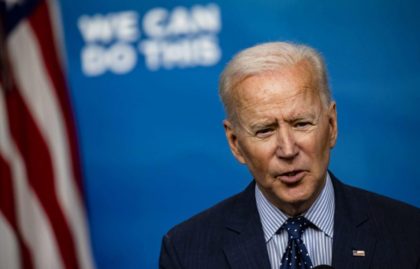US Extends Blacklist of Persons Destabilising, Corrupting Balkans

“Support for democracy in the Balkans is taking the form of challenging attempts to sow political aggression and conflict internally and between states, including attempts to challenge territorial integrity,” Drilon Gashi, a Washington-based international development specialist, told BIRN.
“Regional leaders should thus see this as an added deterrent to political and economic corruption,” he added.
The White House on Tuesday announced that President Joe Biden had extended an Executive Order blocking assets and suspending entry into the United States of persons allegedly contributing to the destabilization of the Western Balkans.
Biden also expanded the scope of the ban with Albania, a move that the US Ambassador to Albania, Yuri Kim, welcomed, saying: “Countering corruption is a core US national security interest.”
Last month, the US State Department declared Albania’s former president and former PM Sali Berisha – a central figure in Albania’s post-communist politics – unwelcome, citing his “corrupt acts” in office, especially when he was prime minister.
The Executive Order was first introduced in June 2001 when former US President George Bush suspended the entry into the United States of several former guerrilla fighters in the Kosovo Liberation Army, KLA, for their alleged role in an ethnic Albanian armed insurgency in North Macedonia.
Biden justified the move, “finding that the situation in the territory of the former Socialist Federal Republic of Yugoslavia and the Republic of Albania (the Western Balkans), over the past two decades, including the undermining of post-war agreements and institutions following the breakup of the former Socialist Federal Republic of Yugoslavia, as well as widespread corruption within various governments and institutions in the Western Balkans, stymies progress toward effective and democratic governance and full integration into transatlantic institutions, and thereby constitutes an unusual and extraordinary threat to the national security and foreign policy of the United States”.
The ban includes officials considered a threat to many agreements that have helped the region reach peace since the conflicts of the 1990s and early 2000s, including the Prespa Agreement of 2018, which ended the long dispute between Athens and Skopje; the Ohrid Framework Agreement of 2001, which ended Macedonia’s internal conflict between ethnic Albanian rebels and the security forces; United Nations Security Council Resolution 1244, which ended the war in Kosovo, and the Dayton Accords of 1995, which ended the 1992-5 war in Bosnia and Herzegovina.
Gashi says that the order is likely to proceed with “economic and travel sanctions to Balkan leaders – either current or in the opposition – who go against the principles, commitments, and agreements referenced in the Executive Order”.
He said, “the Executive Order is certainly a promising development for the region as it targets the actions of certain regional actors, primarily Serbia’s current government, which continues to challenge the territorial integrity of Bosnia as well as Kosovo.”
“The Serb Republic in Bosnia is likely also put on notice with its threats as well as concrete actions aimed at contravening Bosnia’s sovereignty and territorial integrity,” he added.
US Secretary of State Antony Blinken specified that the new Executive Order provides for sanctions against persons whose actions destabilize the region by undermining democratic institutions and the rule of law or by violating human rights.
“The United States is committed to ensuring the stability and security of the Western Balkans, allowing countries in the region to fulfil their potential as free and prosperous democracies. We are also committed to combatting corruption and demonstrating the advantages of transparent and accountable governance,” the Secretary of State said moments after the White House published the Order.
In Kosovo, the opposition Democratic League of Kosovo, LDK, said it supported the order and asked for actions against those who are blacklisted.
“The LDK supports this Order and we believe that based on this decision, further actions against corrupted persons who violate security in Western Balkans will be taken soon,” LDK official Shkemb Manaj said in Pristina on Tuesday.